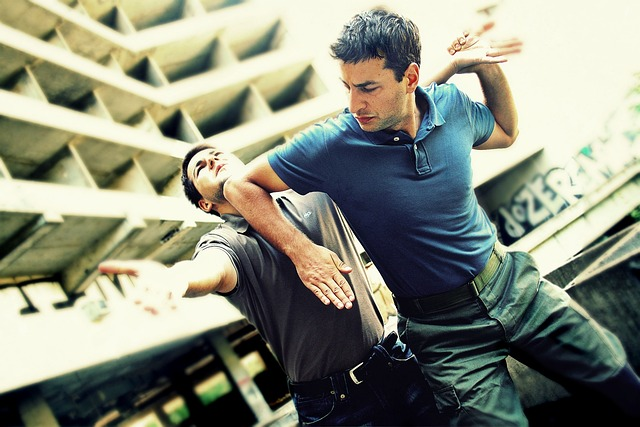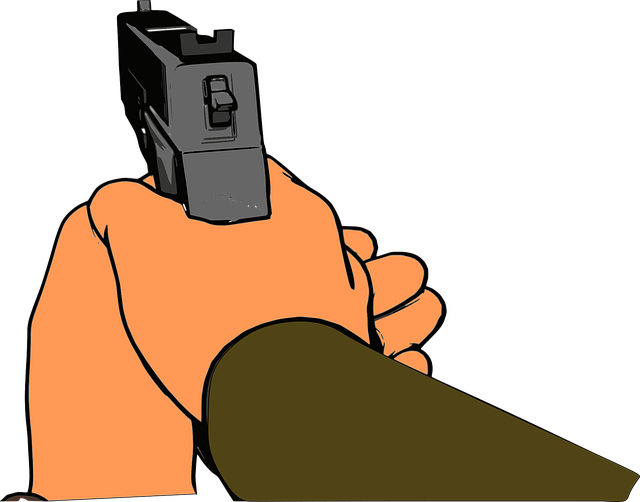Self-Defense Law In California

Introduction
As a California resident, it’s essential to understand the state’s self-defense laws and how they apply in various situations. Knowing your rights and the limitations of using force to protect yourself or others can help you make informed decisions in potentially dangerous situations. This comprehensive guide will explore California’s self-defense laws, including the castle doctrine, stand-your-ground laws, and the use of deadly force.
The Basics of Self-Defense in California

In California, self-defense is a legal justification for using force against another person. To successfully argue self-defense, you must demonstrate that you:
- Reasonably believed that you or someone else was in imminent danger of suffering bodily harm or being touched unlawfully
- Used only the amount of force necessary to defend against that danger
- Did not use more force than was reasonable under the circumstances
Imminent Danger and Reasonable Belief
One of the key elements of self-defense is the concept of imminent danger. In California, you can only use force to defend yourself if you reasonably believe that you or someone else is in immediate danger of suffering bodily injury or being touched unlawfully.
This belief must be based on the circumstances as they appeared to you at the time, and it must be a belief that a reasonable person in the same situation would have held. It’s important to note that the danger must be imminent, meaning it is about to happen or is currently happening, not a threat of future harm.
Reasonable Force and Proportionality

In self-defense, you must use only the force reasonably necessary to protect yourself or others from imminent danger. The force you use must be proportional to the threat you face. For example, if someone pushes you, you cannot respond by hitting them with a baseball bat, which would be considered excessive force.
California’s Castle Doctrine

California’s castle doctrine, also known as Penal Code 198.5 PC, states that if someone forcibly enters your residence, you have the right to use deadly force to protect yourself or others if you reasonably believe that the intruder intends to commit a violent crime. Under this doctrine, you have no duty to retreat from your home before using deadly force.
However, the castle doctrine only applies when the forcible entry has already occurred or is in the process of occurring. It does not give you the right to use deadly force against someone who is merely trespassing on your property or has peacefully entered your home.
Stand Your Ground Laws

Unlike some other states, California does not have a stand-your-ground law. This means that if you are outside your home, you must retreat from a confrontation if it is safe before using force in self-defense. However, if retreating would put you or others in greater danger, you may still use reasonable force to protect yourself or others.
The Use of Deadly Force

In California, you can only use deadly force in self-defense if you reasonably believe that you or others are in imminent danger of being killed, suffering significant bodily injury, or being the victim of a forcible and atrocious crime. Deadly force is any force that creates a substantial risk of causing death or serious physical injury.
The same principles of reasonable belief, imminent danger, and proportionality apply when considering the use of deadly force. The use of deadly force must be necessary to prevent imminent danger and proportional to the threat faced.
Imperfect Self-Defense

California law recognizes a concept called imperfect self-defense. This applies when a person has an honest but unreasonable belief that they are in imminent danger and uses force to defend themselves. In such cases, the person may not be guilty of murder but could still face charges of manslaughter or assault.
Self-Defense Against Law Enforcement

Self-defense against law enforcement officers is a complex and controversial issue. In general, you have the right to defend yourself against excessive force by the police. However, you must prove that the officer’s use of force was unreasonable and that your use of force was necessary and proportional.
It’s crucial to remember that resisting arrest or assaulting a police officer is a serious crime, and claiming self-defense in such situations is an uphill battle. If you believe that you have been subjected to excessive force by the police, it’s essential to contact a criminal defense attorney as soon as possible.
The Burden of Proof

In California, self-defense is considered an affirmative defense. If you are charged with a crime and claim self-defense, you must prove that your actions were justified. The prosecution must first prove beyond a reasonable doubt that you committed the alleged crime, and then you must present evidence to support your claim of self-defense.
The Role of Jury Instructions
If your case goes to trial, the judge will give the jury instructions on evaluating your self-defense claim. These instructions, known as CALCRIM (California Criminal Jury Instructions), outline the elements of self-defense and guide the jury in determining whether your actions were justified under the law.
The Importance of Legal Representation

If you have used force to defend yourself or others and are facing criminal charges, it’s essential to seek the advice of an experienced criminal defense attorney. Self-defense cases can be complex, and having a knowledgeable lawyer on your side can make a significant difference in the outcome of your case.
Your attorney can help you gather evidence to support your claim of self-defense, negotiate with prosecutors, and present a compelling case in court. They can also advise you on the potential consequences of your actions and help you navigate the criminal justice system.
Conclusion
Understanding California’s self-defense laws is crucial for all residents of the state. Knowing when and how to use force to protect yourself or others can help you make informed decisions in dangerous situations and avoid criminal charges.
However, it’s essential to remember that self-defense is a complex legal issue, and each case is unique. Suppose you have used force to defend yourself and are facing criminal charges. In that case, it’s crucial to seek the guidance of an experienced criminal defense attorney who can help you navigate the legal system and protect your rights.
Acted in self-defense: This phrase refers to someone claiming they acted in self-defense during an altercation.
Substantial physical injury: Substantial physical injury means a significant bodily injury, more severe than minor harm.
Imminent threat: An imminent threat is an immediate danger of harm likely to occur very soon.
Unlawful and forcible entry: Unlawful and forcible entry refers to someone illegally entering a property by force, such as breaking in.
Legal doctrine: A legal doctrine is an established principle or rule in the legal system.
Defense laws California: This refers to the specific self-defense laws in California.
force intended: Force intended means the deliberate use of physical force against another person.
self defense case: A self-defense case is a legal case in which the defendant claims they acted in self-defense.
even deadly force: This phrase refers to using lethal force, such as a weapon, to defend oneself.
only a valid argument: This suggests that a particular argument or defense is the only legally valid one in a given situation.
not a member: In the context of self-defense, this could refer to the victim not being a household or family member.
Related Terms: California self-defense laws, reasonable person, imminent harm, suffering great bodily injury, reasonable fear, fear imminent bodily harm, lawful self-defense,













